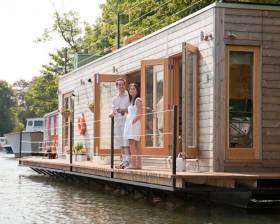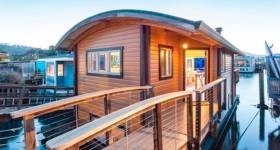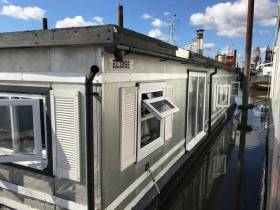Displaying items by tag: floating homes
Dun Laoghaire Harbour’s ‘Floating Homes’ Tender Goes Live
#Property - Dun Laoghaire Harbour Company has now launched the procurement process for its plans to develop ‘floating homes’ on the waterfront, as promised in January.
The tender published to the State’s eTenders website is “seeking proposals for the development and operation of affordable floating homes within the harbour” by Thursday 12 April.
The concession notice for the estimated €15 million development stipulates that some 60% of the Coal Harbour area has been earmarked for the plan, which is expected to comprise around “50 single-storey affordable floating homes for rental by the candidate.”
The harbour company adds: “It is important that any development is high quality and sensitive to the site’s high profile waterside location.”
‘Floating Homes’ Plan For Dun Laoghaire Harbour Moves Forward
#Property - Plans to develop “floating homes” in Dun Laoghaire Harbour — and refocus the area on accommodation as well as leisure — have moved a step forward as a formal procurement process is set to begin.
Last September, the Dun Laoghaire Harbour Company sought expressions of interest for plans comprising “a cluster of floating affordable homes” moored in the harbour.
“About two years ago we looked at the notion of a floating hotel,” Dun Laoghaire Harbour Company chief Gerry Dunne told the Sunday Independent. “This concept is the same — to utilise the water space for residential purposes, rather than just leaving it for leisure pursuits.”
The precise specification of the final homes has get to be determined, though a retail price of up to €350,000 is to be expected.
Dunne also expects that if the procurement process is completed in the first quarter of this year, “we could have the floating homes project up and running in 2019.”
The Sunday Independent has more on the story HERE.
Where to Moor a House Boat on the Irish Coast?
Afloat.ie reader Gerald Heffernan is seeking advice on buying a house boat to live on over the summer with the option of renting it out also. He asks 'Where is a good spot to park moor it and what sorry of costs are involved? I love Crookhaven,Valentina, Knightstown etc'.
Other than on the inland waterways, houseboats are virtually unknown in Ireland, and in some cases there may actually be harbour and marina bye-laws banning them. In most ports including those you mention, the rise and fall of tide has to be taken into consideration unless you can get a marina berth, and then you have to be prepared to go ashore to use the ablutions facilities. As to berthing costs, we suggest you contact the Harbour Master or Marina Manager at the port of your choice.
































































